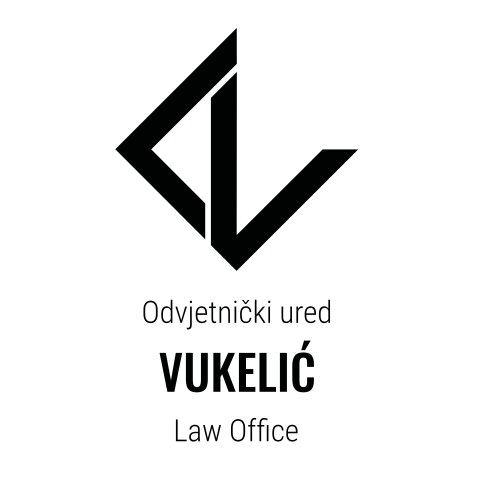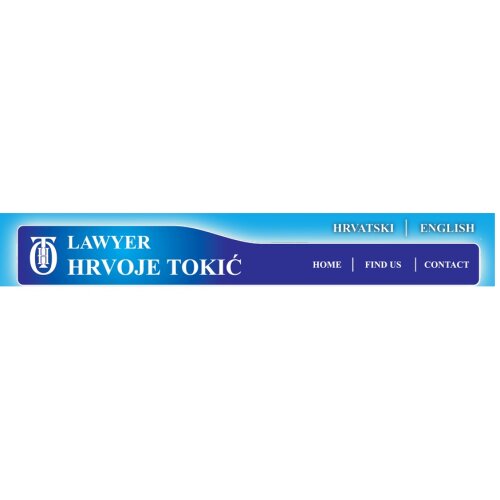Best Merger & Acquisition Lawyers in Croatia
Share your needs with us, get contacted by law firms.
Free. Takes 2 min.
Or refine your search by selecting a city:
List of the best lawyers in Croatia
About Merger & Acquisition Law in Croatia
Merger and Acquisition (M&A) law in Croatia is a complex field that deals with the consolidation of companies and assets. Governed by both Croatian corporate law and EU regulations, this field involves a variety of transactions where the ownership of companies or business organizations is transferred or consolidated. M&A activities in Croatia often require navigating through regulatory approvals, conducting due diligence, and carefully structuring the transaction to comply with local laws and international standards. As Croatia is a member of the European Union, its M&A regulations align closely with EU directives, although there are unique national considerations that must be addressed.
Why You May Need a Lawyer
Engaging in M&A activities can be complex, and legal advice is often crucial for several reasons:
- Regulatory Compliance: Ensuring that the transaction complies with Croatian and EU laws.
- Due Diligence: Conducting thorough investigations to understand potential risks and liabilities.
- Negotiations: Structuring deals to reflect the best interests while anticipating any legal challenges.
- Documentation: Drafting and reviewing agreements to ensure legal enforceability and clarity.
- Conflict Resolution: Addressing disputes or issues that may arise during the transaction process.
Local Laws Overview
Several key aspects of local laws are relevant to M&A in Croatia:
- Company Act: This act regulates how companies are formed, operate, and manage mergers, emphasizing requirements for shareholder meetings and approvals.
- Competition Law: Enforced by the Croatian Competition Agency, this is crucial for preventing monopolistic practices and ensuring fair competition.
- Securities Regulation: Overseeing any transactions involving public companies to protect investors' rights and market transparency.
- Employment Law: Important for managing workforce transitions and ensuring compliance with worker rights amid restructuring.
Frequently Asked Questions
1. What is the typical timeline for an M&A transaction in Croatia?
The timeline for an M&A transaction in Croatia varies depending on the complexity of the deal. Typically, it can take several months, including strategic planning, negotiating terms, due diligence, and obtaining regulatory approvals.
2. Are there any restrictions on foreign ownership of Croatian companies?
Generally, Croatia allows foreign ownership of companies. However, certain industries may have restrictions or require special regulatory approval, especially in sectors involving national security or public interest.
3. What role does the Croatian Competition Agency play in M&A?
The Croatian Competition Agency reviews mergers to prevent anti-competitive practices and ensure a fair market environment. Transactions that could significantly impact market competition require the agency's approval.
4. How are employees affected in a merger or acquisition?
Employment rights are protected under Croatian law. Employees should be informed about the transaction, and their rights in terms of contracts and continued employment must be considered, possibly requiring consultations with trade unions.
5. What is due diligence, and why is it important?
Due diligence is a comprehensive appraisal of a business, its assets, and liabilities conducted before finalizing a transaction. It's crucial for identifying risks and ensuring informed decision-making.
6. Do I need a local representative if I'm a foreign entity involved in M&A in Croatia?
While not always necessary, having a local representative or advisor can be beneficial for navigating legal, regulatory, and market-specific nuances more efficiently.
7. What financial reporting requirements exist during M&A transactions?
Companies must provide accurate and detailed financial reports throughout the M&A process to ensure transparency and compliance with both national and EU-wide reporting standards.
8. How are disputes usually resolved in M&A activities?
Disputes can be resolved through negotiation, mediation, arbitration, or litigation, depending on the severity and nature of the issue and the terms outlined in the transaction agreements.
9. Can an M&A transaction be reversed?
While unwinding a completed M&A transaction is complex and uncommon, it is possible under certain conditions, such as significant breaches of agreement terms or regulatory non-compliance.
10. What tax considerations should be taken into account?
M&A transactions in Croatia can have significant tax implications. It's critical to understand local tax laws concerning corporate income tax, VAT, capital gains tax, and any applicable tax incentives or reliefs.
Additional Resources
Several resources can provide further assistance and information:
- Croatian Chamber of Economy: Offers varied tools, legal frameworks, and databases related to business activities in Croatia.
- Croatian Competition Agency: For guidelines and decisions related to antitrust and competition laws.
- Ministry of Economy and Sustainable Development: For insights into regulations affecting economic activities.
- European Commission: Provides broader EU context and frameworks that affect M&A activities.
Next Steps
If you need legal assistance in M&A, consider the following steps:
- Initial Consultation: Schedule a meeting with a lawyer or law firm specializing in M&A to discuss the specifics of your situation.
- Evaluation: Have your potential legal advisor assess the legal, financial, and strategic aspects of the transaction to determine the necessary course of action.
- Engagement: Formally hire a legal expert to guide you through the process, ensuring compliance with all relevant laws and regulations.
- Documentation: Work with your lawyer to draft and review all necessary contracts and documents pertinent to the transaction.
- Monitoring: Stay informed through regular updates from your legal advisor to effectively manage the transaction process and address any emerging issues.
Lawzana helps you find the best lawyers and law firms in Croatia through a curated and pre-screened list of qualified legal professionals. Our platform offers rankings and detailed profiles of attorneys and law firms, allowing you to compare based on practice areas, including Merger & Acquisition, experience, and client feedback.
Each profile includes a description of the firm's areas of practice, client reviews, team members and partners, year of establishment, spoken languages, office locations, contact information, social media presence, and any published articles or resources. Most firms on our platform speak English and are experienced in both local and international legal matters.
Get a quote from top-rated law firms in Croatia — quickly, securely, and without unnecessary hassle.
Disclaimer:
The information provided on this page is for general informational purposes only and does not constitute legal advice. While we strive to ensure the accuracy and relevance of the content, legal information may change over time, and interpretations of the law can vary. You should always consult with a qualified legal professional for advice specific to your situation.
We disclaim all liability for actions taken or not taken based on the content of this page. If you believe any information is incorrect or outdated, please contact us, and we will review and update it where appropriate.
Browse merger & acquisition law firms by city in Croatia
Refine your search by selecting a city.

















